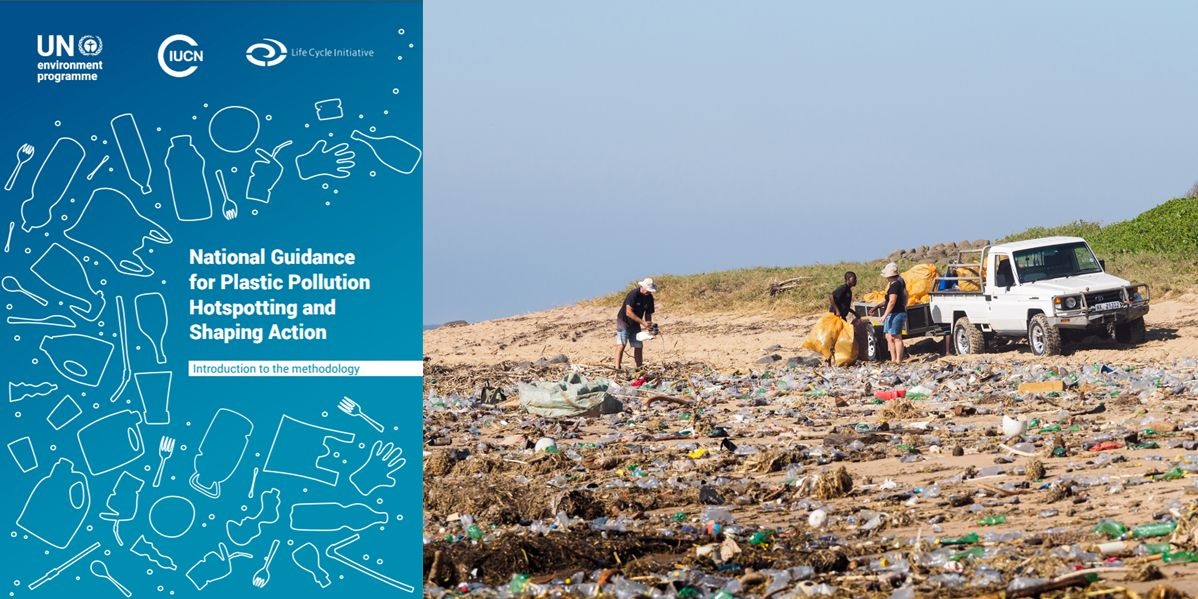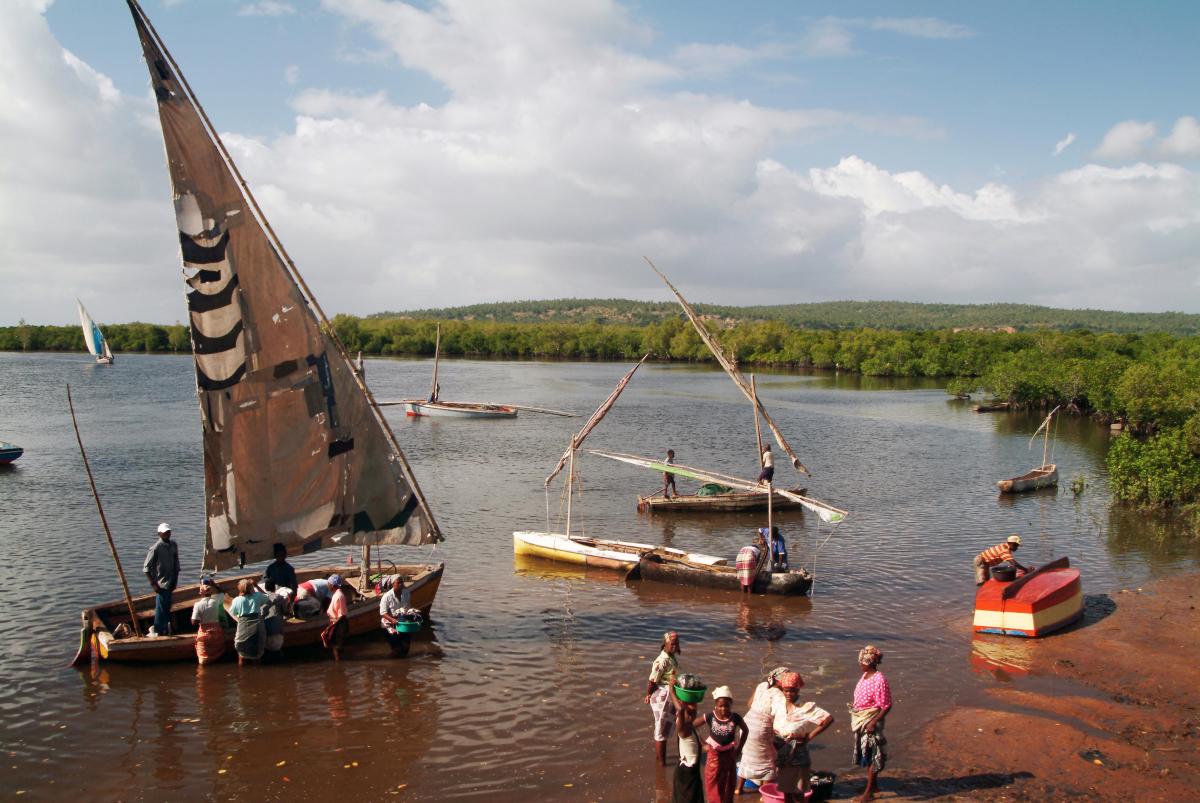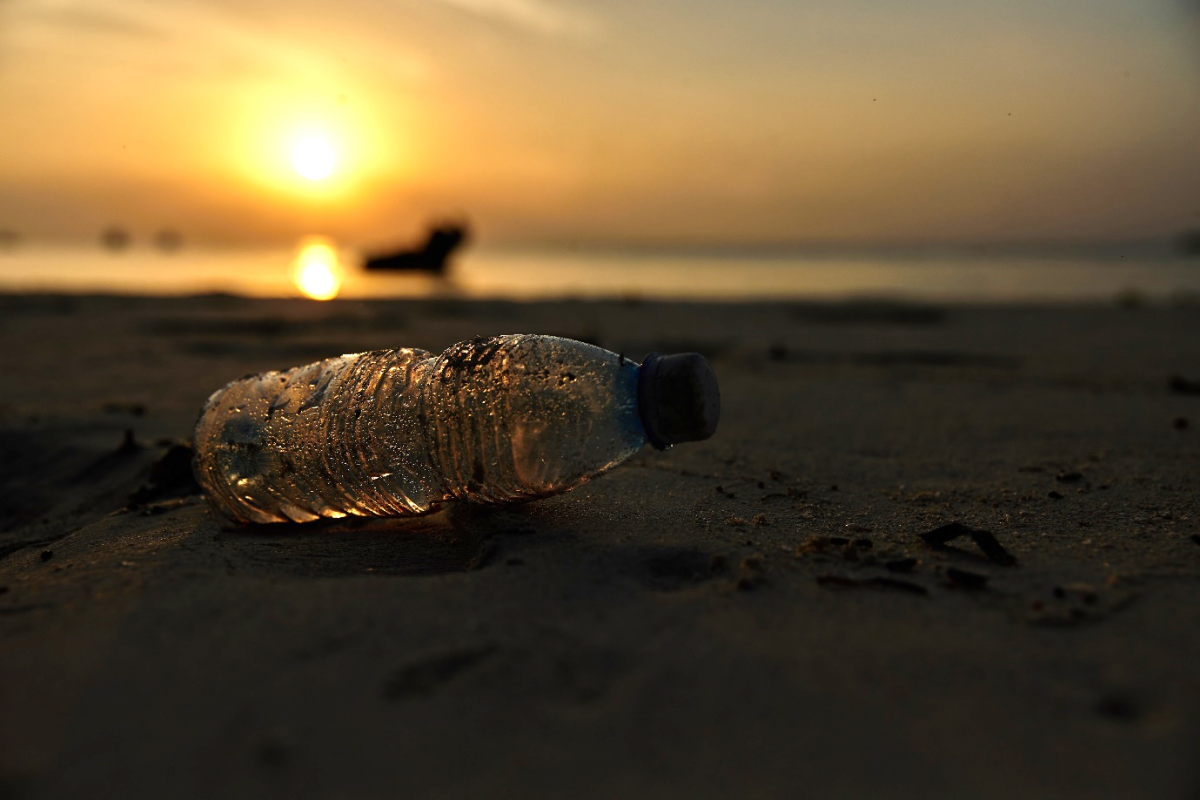Mozambique companies champion good practices in value chains
Mozambique has developed a strategy that builds on large companies championing sustainable practices to spread them throughout their value chains. The aim is to accelerate the adoption of good biodiversity practices, by subcontractors and suppliers, that will support biodiversity and economic development.
Through BIODEV2030, IUCN has joined forces with the Confederation of Economic Associations (CTA) in Mozambique, and with the National Directorate of Environment (DINAB), is accelerating private sector commitments that will help Mozambique meet its national biodiversity targets, as well as its Sustainable Development Goals. The country strategy, developed with and endorsed by national stakeholders, is detailed in the “Conceptual models of voluntary sectoral commitments” document.
The strategy is based on the premise that the implementation of good practices on biodiversity and climate should be accelerated by larger companies, which have the capacity to promote good practices and encourage their adoption by their suppliers and subcontractors - small and medium-sized enterprises (SMEs), communities and producer associations.
“The first challenge is the mobilisation of companies, especially large corporations, which will serve as an anchor for small and medium sized companies to engage in this concept of voluntary commitments,” said João Carlos Frade, Vice President, Confederation Trade Association (CTA). BIODEV2030 has found such "champion" companies (see the video) that reconcile biodiversity conservation with a profitable business model, while increasing the income of smallholders.
In the agriculture sector, EcoFarm Moçambique Lda is a company producing single origin organic cane sugar from the Zambeze Valley in Sofala Province, an area where elephants, hippos, monkeys and crocodiles roam freely and where local communities depend mostly on subsistence agriculture and natural resources. Out of the 1,300 hectares dedicated to sugar cane production, 700 are managed by EcoFarm and 600 by cooperatives.
“EcoFarm has supported the creation of the cooperatives, their registration and training. The cooperatives plant sugar cane and already have a guaranteed market, namely EcoFarm. At present, three cooperatives have already been established and through them we are creating jobs for the local population,” explains Tsitsi Vendo, Director of Administrative and HR at EcoFarm.
Organic farming benefits biodiversity and incomes. “Small-scale farmers understand very well that they are not harming the land because their production is not based on chemicals or chemical fertilizers. The only fertilisers they use are organic fertilisers like compost.” confirms Stela Candiado, Cooperative Relations Manager at EcoFarm. Antelopes are slowly returning to the area.
In the fisheries industry, actors are also aware of what is at stake. “The fundamental secret to our sustainability and profitability is the existence of resources. And only a better management of these resources and their ecosystems will guarantee our sustainability,” said Muzila Nhatsave, Secretary of Mozambican Association of Industrial Shrimp Fishing Shipowners (AMAPIC).
This awareness leads PESCAMAR, a fishing company specialised in prawns based in Beira, Sofala Province, to search and invest in international technologies to reduce their impacts on marine ecosystems, including using clear-bottom boats.
“The ships allow us to see the bottom of the sea, how the nets are dragged and how the doors are placed in the sea, without going all the way to the bottom, which would harm the ecosystem and biodiversity,” explains Hélder Cebola, Responsible for Quality at PESCAMAR.
The company also takes an active part in fishing research in Mozambique and supports oceanic data gathering to monitor stocks. As a key industrial actor in the fishing sector, PESCAMAR engages whenever possible with SMEs to transmit best practices and share their knowledge in terms of new technologies and innovations that can be used for the preservation of nature. “The biggest challenge is always to act ethically. In all the communities where we go to, we have to act ethically, preserving the environment,” adds Mr Cebola.
Other actors - Açucareira de Xinavane, Companhia de Sena, MANMART, HOYOHOYO, Kenmare and members of the Mozambican Association of International Petroleum Operators and the Mozambican Association of Banks – from the sugar cane, soy, heavy sands and natural gas industries and from the finance sector, shared their best practices during dialogues held in 2022, and contributed to the design of the “Conceptual models of voluntary commitments”.
The second phase of BIODEV2030 was officially confirmed by the French Development Agency (AFD) in March, and is expected to start in September 2023. This second phase will support the implementation of voluntary commitments already secured, seek to mobilise stakeholders who did not participate in the first phase and facilitate discussions on the evolution of sectoral policies to preserve biodiversity and contribute to the country’s National Biodiversity Strategy and Action Plan (2015-2035).
BIODEV2030 is funded by the French Development Agency (AFD), coordinated by Expertise France, implemented in eight countries by IUCN and another eight by WWF.



